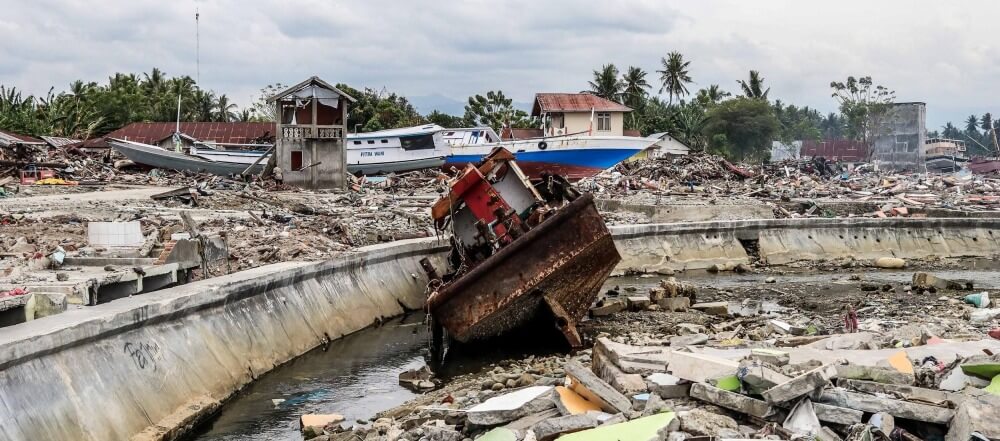
Eight months have passed since a triple disaster of earthquake, tsunami, and liquefaction struck areas of Palu, Sigi, and Donggala in Central Sulawesi province, Indonesia. The gravity of what had happened in Central Sulawesi devastated the area. According to the National Disaster Mitigation Agency (BNPB), the disasters claimed over 2,200 lives, left more than 4,600 with serious injuries, and caused more than 220,000 people in Central Sulawesi to be displaced from their homes.
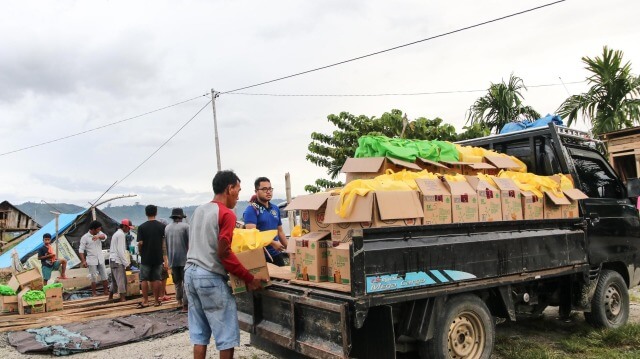
The government, humanitarian agencies, and communities have since been working to rehabilitate and reconstruct damaged areas across Central Sulawesi. With the support of ICCO Cooperation, Kopernik supported these efforts to address the critical needs of affected communities as they rebuild their lives after the disaster. We focused our support on two villages: Jono Oge in Sigi district, and Tompe village in Donggala district. These two villages had sustained severe damage due to the earthquake and liquefactions, but received limited aid. One of the joint efforts between ICCO Cooperation and Kopernik to support affected communities was through the distribution of school kits and kitchen kits in Tompe village, Donggala district.
School Kits Distribution
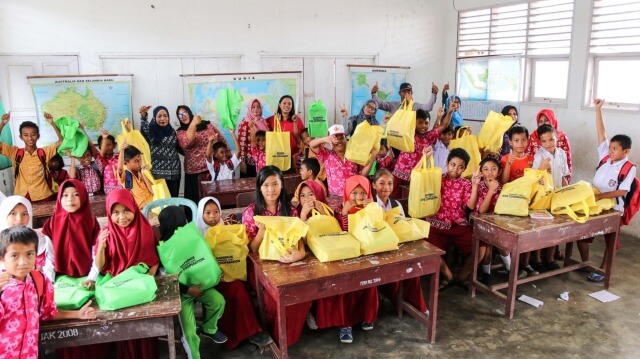
On 24 January 2019, Kopernik’s Emergency Response team in Palu distributed 383 school kits to two kindergartens and two elementary schools in Tompe village. The school kits consisted of picture books, notebooks, and stationery. The team also conducted hygiene promotion activities to teach students the proper handwashing technique through a fun handwashing song, as well as a handwashing demo.
The hygiene promotion sessions reached as many as 2,563 people in Tompe and Jono Oge villages combined. To further support communities in maintaining hygienic practices in their day to day activities, we also developed Information, Education and Communication (IEC) materials on hand washing, clean water and open defecation free (ODF) practices, and produced and distributed 76 sets of these materials.
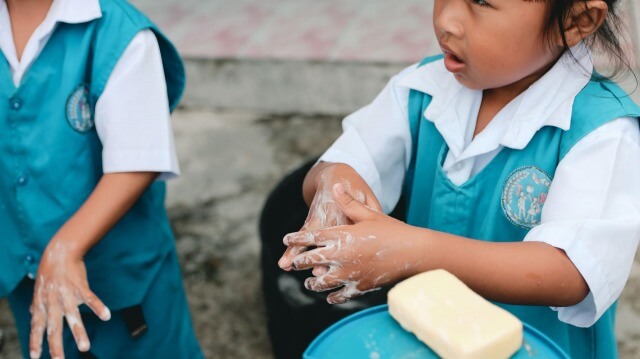
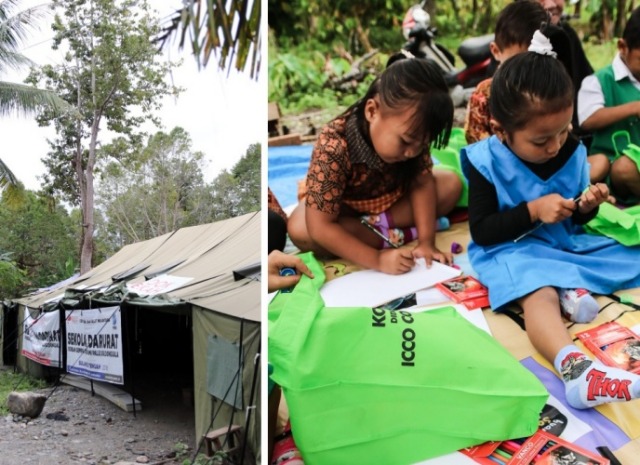
As some school buildings in Tompe were damaged as a result of the disasters, students and teachers had to continue their activities in other locations. For TK Al-Khairat in Tompe, kindergarten students spent their mornings learning and playing in a small tent that functioned as their temporary school. However, there were also some school buildings which sustained only minor damage where it was still safe to study inside.
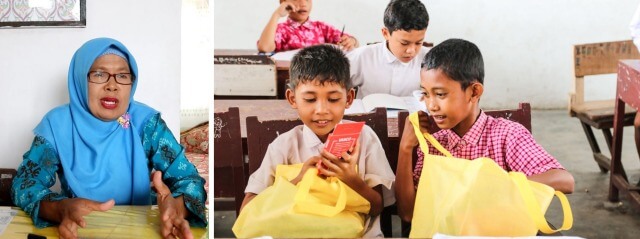
According to Rosniar, the principal of elementary school SDN 02 Tompe, aid distributed by organizations such as Kopernik has greatly supported students and teachers to resume their studies after the disasters.
“A week after the earthquake, teachers and students started to attend school again. After two weeks, half of the school students were already back at school. This is when support such as books and school bags distribution, as well as trauma healing activities started to come in,” Rosniar said. “This also motivated the students to encourage their friends who were still at the evacuation sites to return to school.”
Kitchen Kits Distribution
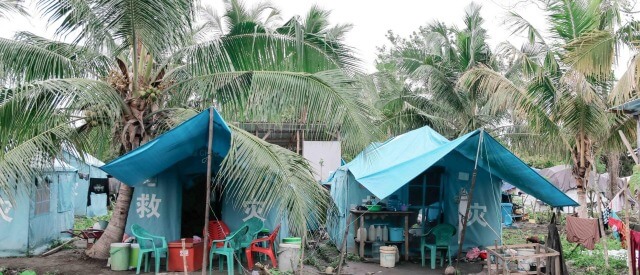
Months after the disaster, many of the affected communities in Tompe village were still living in temporary shelters. Kopernik, supported by ICCO Cooperation, distributed 468 kitchen kits consisting of cooking pots, food containers, and eating utensils to enable families in Tompe to be able to cook for themselves.
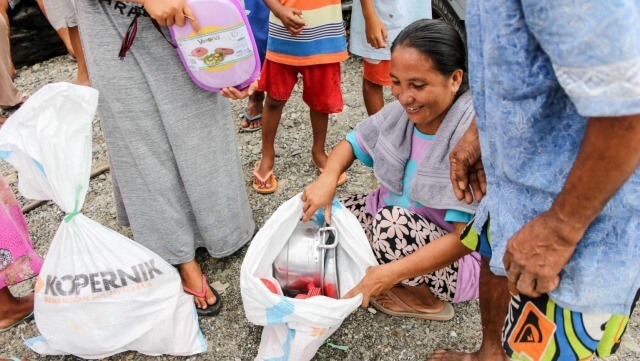
Disaster Mitigation and Preparedness Training
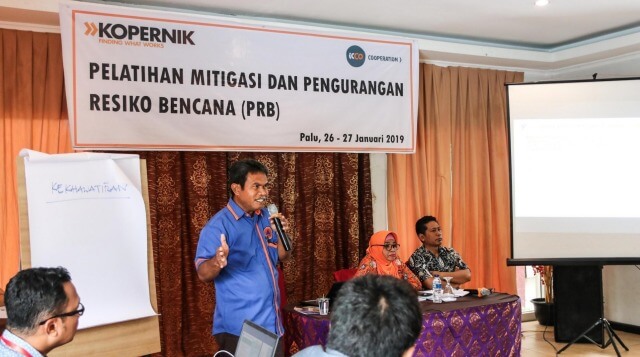
With support from ICCO Cooperation, Kopernik also held a disaster mitigation and preparedness training in Palu, Central Sulawesi on 26-27 January 2019. The training involved speakers from the Donggala Disaster Mitigation Agency (BPBD Donggala) and was attended by youth community members from Tompe village, Donggala district, and Jono Oge village, Sigi district in Central Sulawesi province.
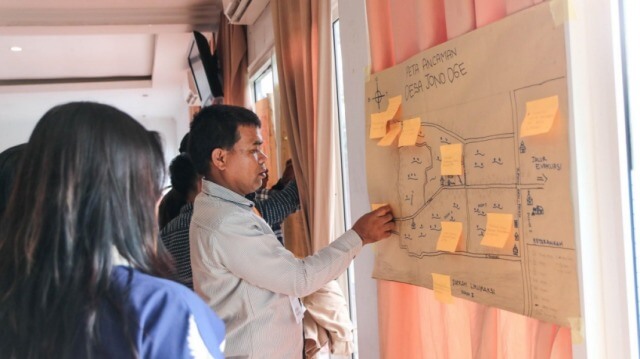
Training participants practicing how to conduct disaster risk reduction mapping.
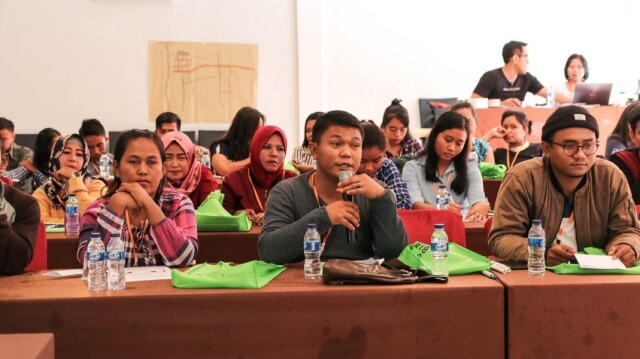
Krisandi, a training participant from Jono Oge village, said that people in his village were still facing trauma months after the powerful earthquake and liquefaction devastated his village. The information he received during the workshop could support them to better prepare for potential disasters in the future “This training is very useful for us. We now know what we need to do to prepare in case of a disaster. I’m keen to implement what I learned from this training in my village,” said Krisandi. Not long after the training, a village disaster preparedness group (TSBD) was formed through a decree (SK) from the head of the Jono Oge village, allowing communities to access village funds for disaster risk reduction activities.
Through the partnership with ICCO Cooperation, Kopernik was able to reach 4,907 people in Tompe and Jono Oge village. This included the distribution of 1,500 family packages consisting of kitchen kits, hygiene kits, sleeping items, as well as 914 packages of study tools, 560 water filters, and 550 solar lights to affected families. We also facilitated training on disaster mitigation and preparedness with two community youth groups in the two villages.
This considerable impact has been possible thanks to the generous support of ICCO Cooperation. We are grateful to ICCO Cooperation for the partnership.
Nonie Kaban contributed to the writing of this article.


